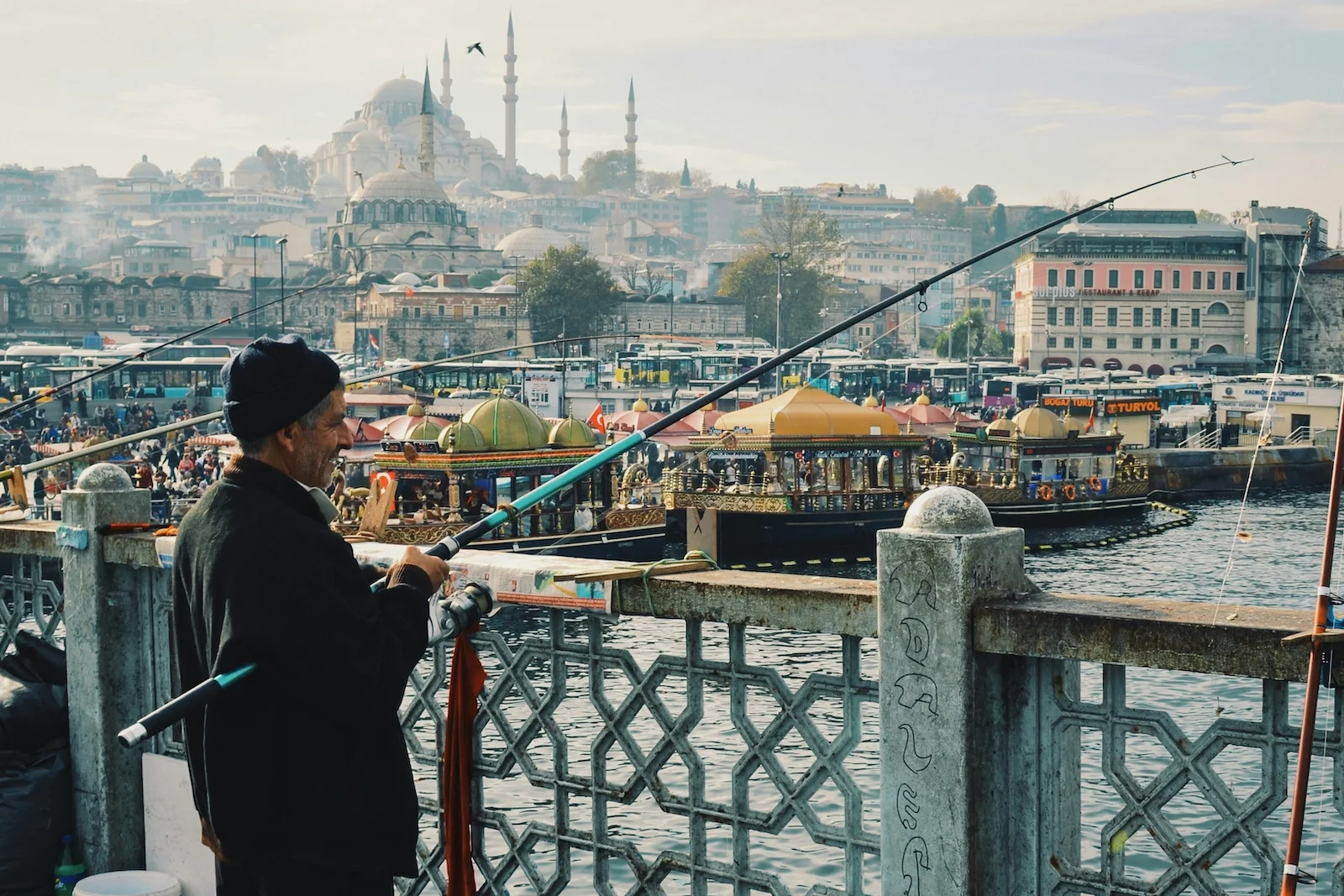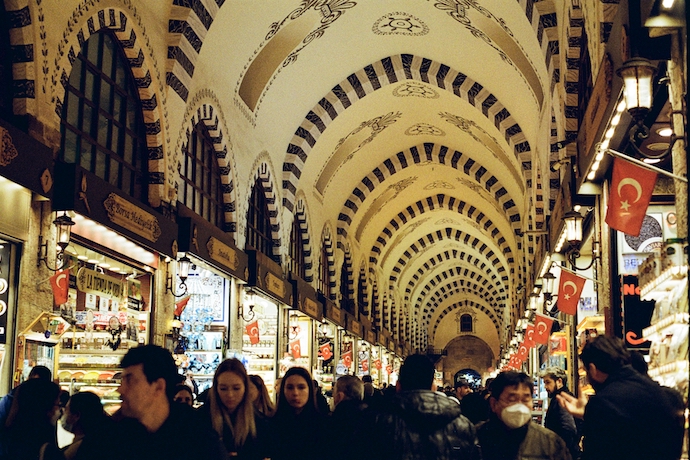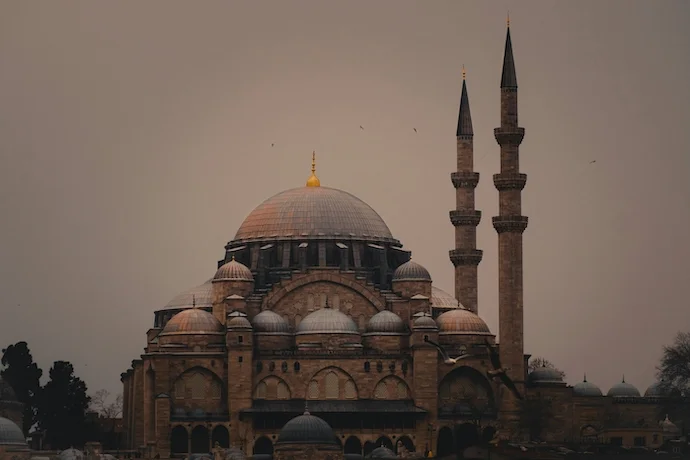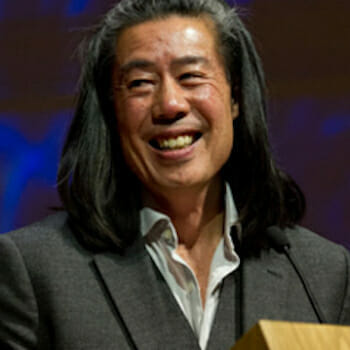
Culture
An Istanbul of Our Times
I admit at the outset that I am a little in love with Istanbul. Yet, I also find its modern atmosphere deeply challenging.
My first visit was in 1992 as a guest of Talat Halman, poet, translator, dean, ambassador, and minister. He remains the most cosmopolitan individual I have ever encountered, a man who embodies the essence of a great city.
If Rome is the eternal city, it is worth recalling that the Roman Empire once relocated its center to what we now call Istanbul. Despite its many name changes—Byzantium, Constantinople—it has remained history’s most consistently cosmopolitan metropolis. The world met here, and, with certain limits, intermingled and tolerated varied worldviews. Christian, Islamic, Jewish, European, and Transcaucasian cultures left their indelible marks, visible today in the enduring monuments that grace the city.

Istanbul straddles the Bosphorus, one of the most breathtaking waterways in the world. It has long been mythologized as the frontier between Europe and Asia. For romantics like Byron, swimming across it became a symbolic challenge freighted with meaning. I would follow his lead if only I could.
Today, the Bosphorus is spanned by great bridges, and the city has grown into a vast sprawl of dense suburbs and crisscrossing highways. To reach the harbor now requires patience that could rival a saint’s as roads twist and merge into polluted bottlenecks of relentless gridlock.
Amid this urban sprawl lies a contradiction: Turkey is often touted as one of the world’s emerging powers. This aspiration is deeply valued politically, even as the country grapples with vast domestic problems and heated debates over freedoms—freedoms often under threat. While Turkey’s cities lean toward opposition politics, President Recep Tayyip Erdoğan retains a firm grip on the rural heartland.
This division is strikingly ironic; the allure of Turkey’s history has always emanated from its melting-pot cities and their celebrated Sultans and Pashas—not from rural chieftains. Yet Erdoğan’s ideological foundation is drawn from the conservative, particularly religious, values of the countryside. What emerges from this mix is a project that could be described as “freedom with Islamic characteristics” or “democracy with Islamic characteristics.”
This vision has no room for competing ideologies. The exile of cleric Fethullah Gülen and the purging of his followers underscore Erdoğan’s consolidation of power, especially in the aftermath of the 2016 coup attempt—whether contrived or failed. Universities and the military were purged, with deans and generals removed en masse. Gülen’s death in October now leaves Erdoğan standing uncontested.

Subtler cultural shifts hint at broader societal changes. For instance, a new form of greeting—kissing one’s own hand and then patting the other person’s cheek or forehead—has been encouraged over direct kissing, an age-old custom across the Eastern Mediterranean. Such small gestures, while seemingly benign, suggest a quiet Islamization—or, at the very least, an encroachment on behavioral norms.
If first a kiss, then what next? A democracy tempered with modesty? The echoes of Viktor Orbán’s “illiberal democracy” in Hungary or Indonesia’s “guided democracy” are hard to miss. The question remains whether Turkey can steer away from such trajectories or risk becoming a society dominated by restrictive manners and thought.
Urban centers like Istanbul and Izmir, with their secular and cosmopolitan histories, along with tourist hubs like Antalya and Bodrum, are hardly suited to such narrow frameworks. Nor is Ankara, where official diplomacy requires interaction with the global community. Turkey’s aspiration to emerge as a significant power on the world stage demands openness and the kind of cosmopolitanism that made Constantinople a beacon of its time.
Erdoğan’s domestic priorities, however, create tensions with his international ambitions. While Turkey has shown boldness in initiatives like operating the first airline with daily flights to Somalia, severing ties with Israel in protest of military aggression, and forging alliances to counter Donald Trump’s Middle East policies, these moves require pragmatic worldliness. Yet Erdoğan’s framing of the Kurdish issue as a domestic terrorism problem undermines his credibility on calls for global freedom. True international freedom cannot coexist with Turkey’s selective omissions, particularly regarding the Kurds. Global leadership demands consistency, not contradictions.
These contradictions were not explicitly addressed at the Istanbul Security Conference I attended in November, where I delivered a keynote address. Nor were topics such as the recent G20 summit or the disheartening outcomes of COP29. Yet these issues loom large for Turkey as the country seeks to define its future on the global stage.
To emerge as a true global power, Turkey must engage not with fragments of the world but with its entirety—and must also engage with itself. True leadership begins with introspection: a willingness to meet one’s own gaze as a precondition for engaging with others from a position of true equality.

